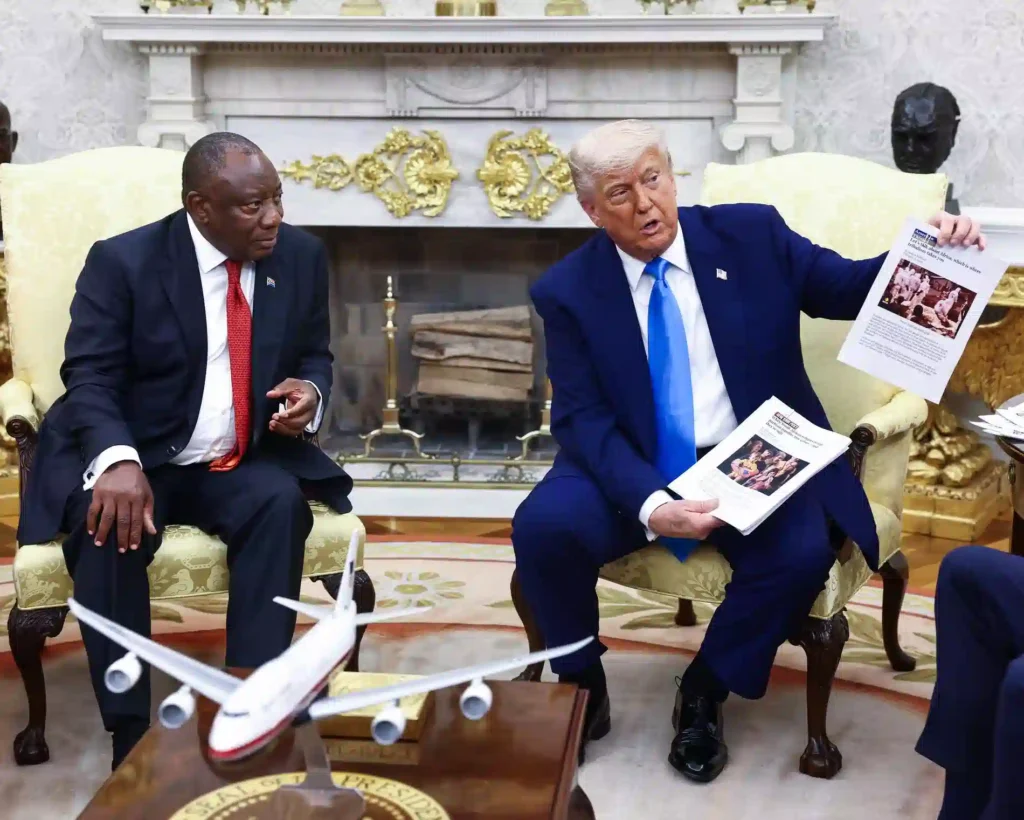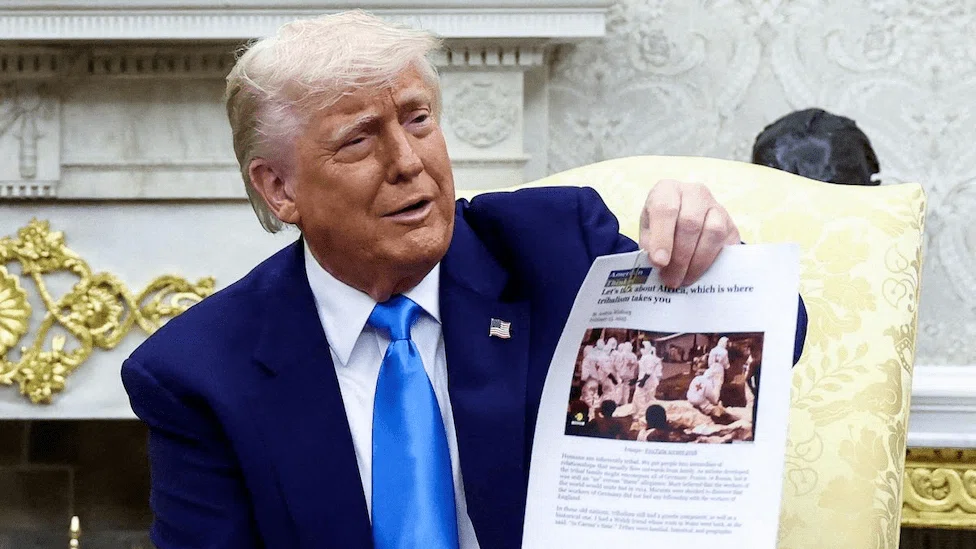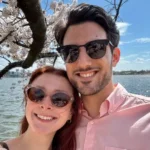Trump’s False Claims on White Farmer Genocide: Former President Donald Trump stirred controversy on Wednesday at the White House. During a heated meeting with South African President Cyril Ramaphosa, Trump presented white farmer genocide claims using misleading images and videos.
He said the media showed mass graves of white farmers in South Africa. However, the visuals were from unrelated events in Congo and a temporary memorial in South Africa. The meeting quickly escalated tensions. Trump’s statements, based on a long-debunked conspiracy theory, alarmed South African officials and sparked global criticism.
Also Read | Trump Ramaphosa Meeting Sparks Tension Over False Genocide Claim
Trump’s False Claims on White Farmer Genocide: Insights
- Trump claimed mass killings of white South Africans using unrelated images from Congo.
- A video he showed misrepresented a memorial site as mass graves.
- The footage included Julius Malema, who was wrongly introduced as a government official.
- Malema is a radical opposition leader with controversial views who is not part of the government.
- Ramaphosa’s team rejected Trump’s narrative and clarified South Africa’s stance.
- The incident damaged already strained US-South Africa ties.
- The South African government denies any targeted attacks on white farmers.
- Experts and fact-checkers widely dismiss Trump’s white farmer genocide claims.
Background
The theory of genocide against white farmers in South Africa has circulated for years. Far-right groups mostly spread it and lack credible evidence. Trump has previously echoed these views, citing them as reasons to offer “refuge” to white South Africans. South Africa has strongly denied any systematic killings or persecution.
The country’s political landscape is complex, with debates around land reform and historical inequality. These claims have added tension to the ongoing discussions about race and land redistribution in South Africa.
Main Event
In a White House meeting with President Cyril Ramaphosa, Trump presented what he called proof of genocide against white farmers in South Africa. Holding up an article with a disturbing image, he claimed the photo showed buried white farmers. However, the image was a still from a video shot by Reuters in Goma, Congo. It showed humanitarian workers handling bodies after a violent conflict unrelated to South Africa.
Trump also played a video that he said showed over 1,000 graves of white farmers. In reality, the footage depicted a temporary memorial beside a highway in South Africa. It was set up after the murder of two Afrikaner farmers, but it was not a burial site. Rob Hoatson, who created the memorial, confirmed this to the BBC.
The video included several clips of Julius Malema, the controversial leader of the Economic Freedom Fighters. Trump wrongly claimed Malema was a government official. Malema, known for radical slogans, is part of the political opposition and not in power. His party received just 9.5% of votes in the last election.
South African officials pushed back strongly. Agriculture Minister John Steenhuisen said he joined Ramaphosa’s coalition to prevent such radical figures from gaining power. The meeting ended with deepened mistrust and a diplomatic strain between the two nations.

U.S. President Donald Trump and South African President Cyril Ramaphosa engage in a heated discussion amid tensions over Trump’s controversial claims about white farmer killings in South Africa. The diplomatic rift highlights ongoing debates over misinformation and racial tensions.
Photo Credits: Shutterstock.
Implications
Trump’s white farmer genocide claims risk worsening US-South Africa relations. The South African government condemned the misinformation and defended its policies. False narratives like these could damage South Africa’s international image and fuel racial division.
They also distract from real issues like land reform and crime. The US may face diplomatic setbacks in Africa due to these statements. Businesses and international observers are concerned about the spread of misinformation at high political levels. This event highlights the risks of using unverified content in diplomatic settings.
Conclusion
The incident shows how misinformation can affect global politics. Experts warn that false claims like the white farmer genocide claims undermine trust and cause diplomatic damage. South African leaders are working to clarify their position and mend ties with the US.
The future of US-South Africa relations may depend on more accurate dialogue and mutual understanding. As tensions settle, the world watches how both nations move forward.



